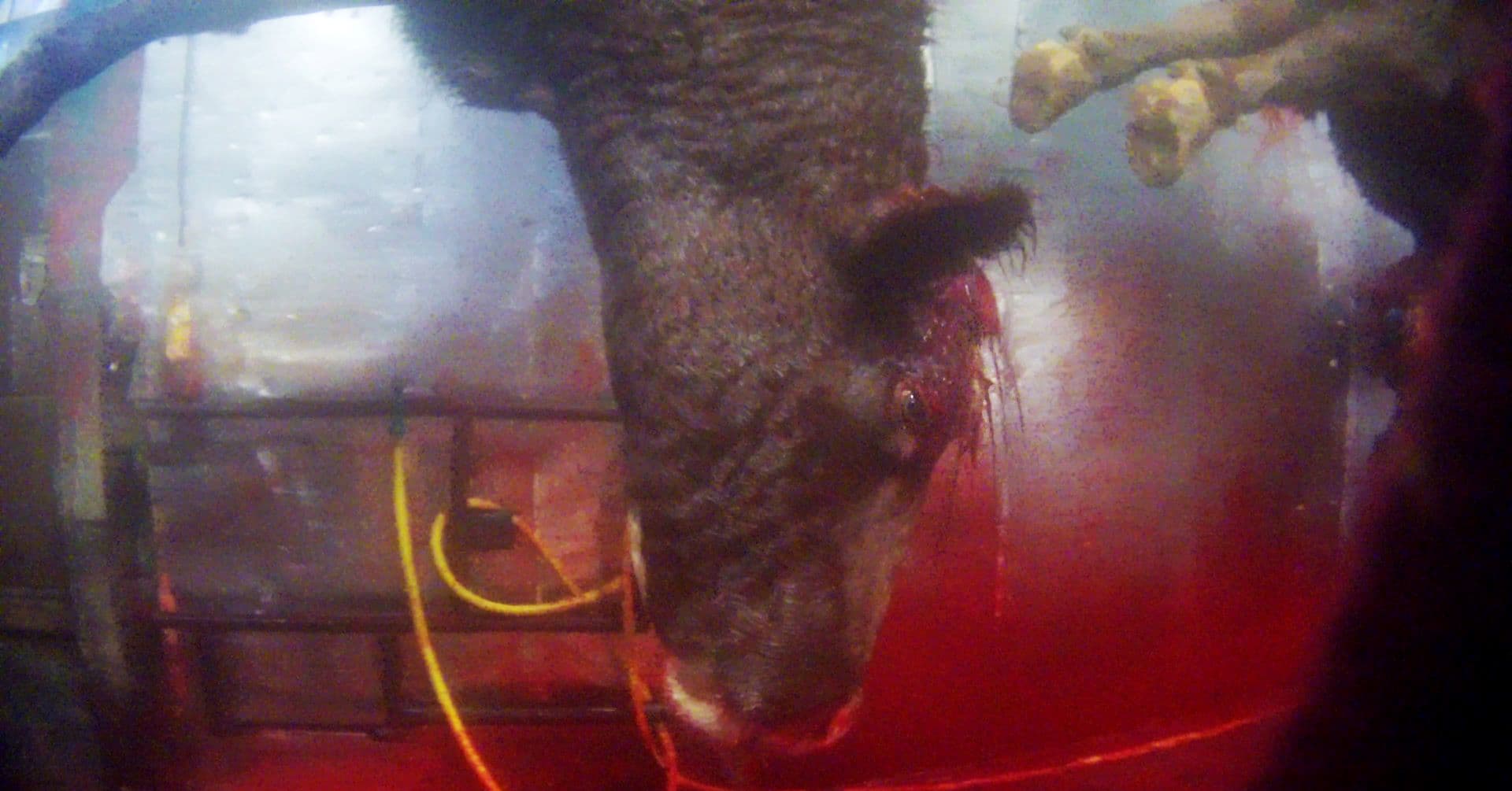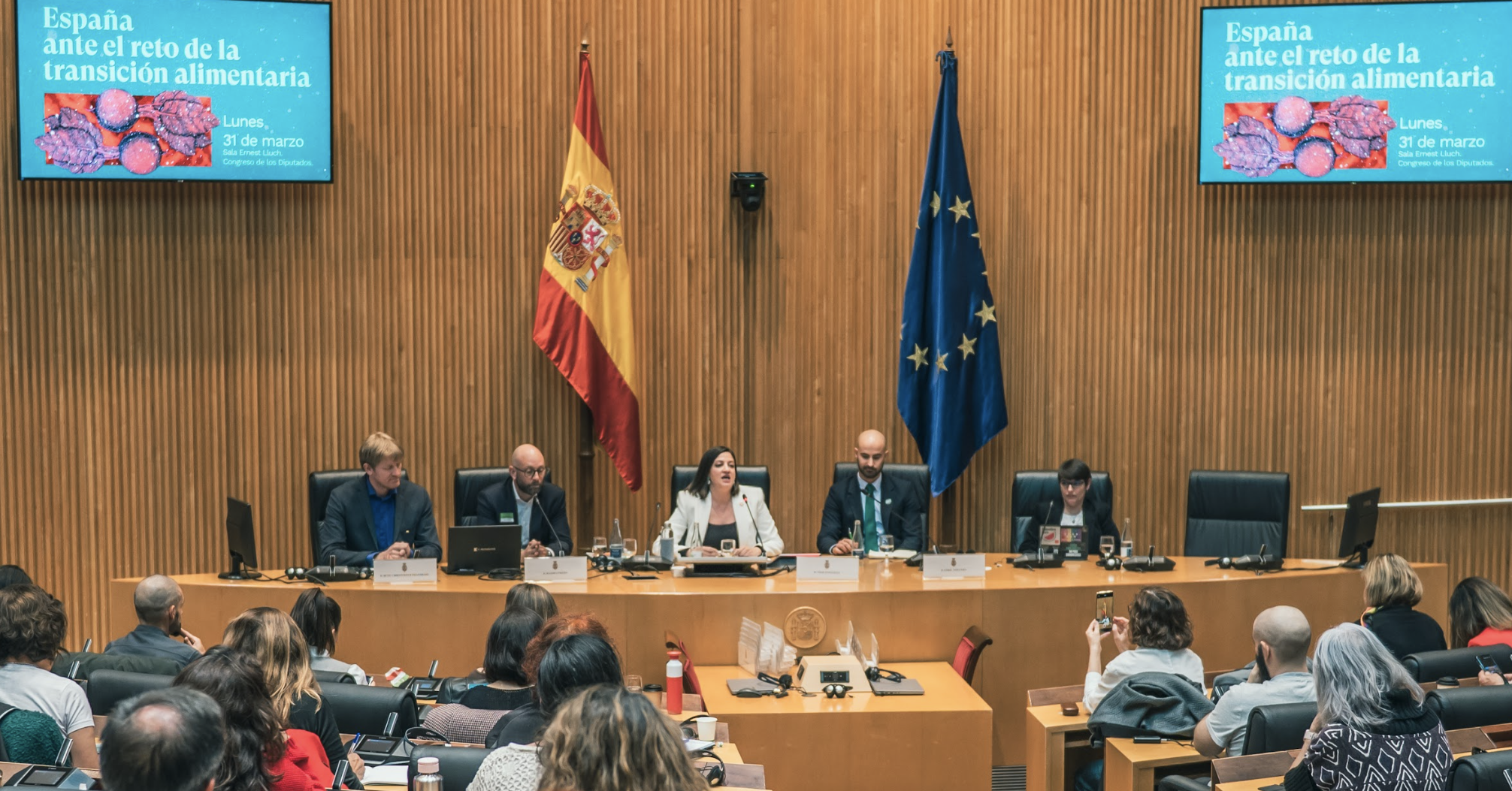For two months last year (Oct-Dec) Animal Outlook's investigator worked undercover at Manning Beef, Los Angeles' last remaining cow slaughterhouse.
Manning Beef has long been embroiled in controversy notably during a 2021 incident when 40 cows escaped and a 2017 attempt to silence activists through litigation.
Our investigator recorded one of the bloodiest and goriest videos in Animal Outlook's 30-year history. Over a two-month period, we found abuses including:
- Multiple cows being butchered while showing signs of sensibility to pain
- A downed dairy cow repeatedly shocked with cattle prods after collapsing, then shot in the head three times with a captive bolt gun
- A worker stabbing a cow in the back of the head, then draining the cow's blood by stabbing them in the throat. This cow flailed while being butchered alive.
- A cow vomiting while their face was skinned and being restrained while moving away from the knife
- A cow left on the floor of the slaughterhouse for over half an hour
- Extreme operational errors and equipment malfunctions. One cow was dropped head first from the slaughter line onto the concrete floor
- Piles of unborn calf fetuses, extracted from pregnant cows sent to slaughter.
Animal Outlook has submitted comprehensive video evidence and legal documentation to the Los Angeles County District Attorney's office, calling for a minimum of 95 criminal animal cruelty counts against Manning Beef, its owners, and its employees.
We also uncovered information in this process showing that the slaughterhouse is in bankruptcy.
Manning Beef has a long history of inhumane handling violations. Between 2018-2024 the company racked up 61 enforcement notices for inhumane handling, including two suspensions. The company's 2020 USDA suspension due to "an egregious act of inhumane handling of animals." In 2022, the company was again suspended for "a trend of repetitive noncompliance" with stunning requirements. Last week, the USDA issued Manning Beef with a further Noncompliance Record based on Animal Outlook's investigative footage.
Yet despite all of this enforcement, the operation has only been offline for a total of one day during this period and has supplied federal child nutrition programs to deliver beef products as recently as March 31, 2025. We have used all of this as our evidence base to demonstrate to the public that the meat inspection system is broken and to advocate for going vegan.
Thank you for your continued support of Animal Outlook.
https://animaloutlook.org/investigations/manning-beef-investigation/



